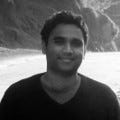Learning from Error is Not the Same as Learning from Experience
There are two modes to learning. We are quite familiar with the first. I’ve not seen the second discussed anywhere. Well, we do cover it in Journey of the Mind, but not in these terms.
They are 1) learning from error and 2) learning from experience. There are profound differences between the two. Another way to think of these: purposeful learning & playful learning.
Learning from error: Our bodies use this all the time. This is how we learn to walk, learn to talk, play tennis or the tabla. We babble, we flail. We make mistakes. We learn from them. We use the difference between where we are and where we want to be to get better. Almost all of the learning methods we are taught in life, even the kind of learning that is used to teach AI models, use this approach.
source: Journey of the Mind
In the case of schooling, someone comes up with goals and learning is driven by trying to reduce the distance between what we know/can do and what the goals suggest they should. This approach assumes a purpose that is well defined. This almost always results in undue emphasis on process and technique. Phonics, multiplication, differentiation, sheet music, free throw techniques.. Why? Because if you know your goal, and everyone’s keenly measuring how well you can achieve this goal, then why not spend the time trying to get there efficiently.
But what if you don’t know what the goal is? This exclusive focus on goals and purposeful, error-driven learning leaves the other approach untapped. But this other way of learning is what gives us humans our astonishing world-transforming super powers! This is learning from experience.
In learning from experience, you do not have a goal. You simply connect what you are experiencing with what you already know, to create new experiences. And here’s something mind-blowing. The process by which this is possible is what we recognize as consciousness. The core learning loop, where the sensory data that is flooding into us is matched with prior experiences, is what Grossberg & Carpenter termed adaptive resonance — matching of top-down expectations with bottom-up reality. This results in all our conscious experiences.
source: Journey of the Mind
Children are naturally wired to learn this way. We call it PLAY. They explore the world, and their own selves, without a goal. As they do, they connect new experiences with old ones and create a progressively richer model of the world. Schooling is now taking it away because of the excessive focus on someone else’s purpose. As adults we give in to the pressures of a purpose, either our own or someone else’s, and shed this ability to learn from playful experience. What a tragedy!
Funny that we are now doing to AI models what we did to children. We are limiting exploration and play and training them with a narrow purpose: minimize errors on datasets. Grossberg’s work could be tremendously useful in getting out of this rut, but that’s another story.
Our bet is we can achieve transformative learning when we are able to balance purpose and play, technique and exploration, error and experience, and procedural and conceptual. There must be a balance, a virtuous feedback loop. Wait, that sounds familiar. A resonance! I’ll call it resonant playful learning. (We create learning experiences guided by this principle.)
So with the right balance, we can through play achieve purpose, and over time this helps us cultivate a perspective. We are a constellation of experiences transforming ambiguous, chaotic data into our next experience. We are unique in this universe because of our particular constellation of experiences, which gives us a truly unique purpose. This is a perspective even the best AI models cannot hope to have, because they simply don’t have your unique bundle of experiences.
This also means that both the career of the future and the purpose of education going ahead are perspective engineering. The building up of meaningful experiences that make us human. So let us play, let us encourage playful exploration and learning, because it is the path to discovering purpose and building a perspective and creating a self.
